- Home
- John Ellsworth
Michael Gresham (Book 5): Sakharov the Bear Page 2
Michael Gresham (Book 5): Sakharov the Bear Read online
Page 2
We waste no time. The odds aren't good: four armed expert killers against two CIA agents. Admittedly, we could also have been classed as expert killers, but there were only two of us. Half the firepower of our quarry and his guards. So be it.
Back to our car we trek, where we open the trunk and retrieve our shotguns. We work the pumps, making sure we are chambered. We remove our goose down and shrug into our body armor. Then back on with the goosedown so we don't freeze on the hike back down to Henrik's. When we are dressed and armed, I turn and have a look at Henrik's layout from our vantage point. It is clear he is feeling safe and secure; several lights are on inside the house and I think I can make out the strains of Ella Fitzgerald floating across the night air. It is no secret the Russians love American jazz, especially Billie Holiday and Ella Fitzgerald, so maybe they are even more relaxed down there than we hope. Petrov slaps me across the back and, without words, we begin our return.
Stars are low and glowing all around; the snow has blown through and this time we can hear the clank of the pigs rooting against their feeders in the feedlot as we come up close to Henrik's dacha. We creep around the western corner of the house, where we are startled by a flock of cuckoos flushing out from under the eaves. I would have thought these would be wintering in the deserts but evidently they have found warmth emanating through the ceiling and have decided to winter in Moscow, as unlikely as that sounds. They circle, return, and dive inside the attic through a small hole beneath the eave. I suck in a deep breath and can feel Petrov bump up against me. She reaches around and gives me a thumbs-up—we're quite sure no one has heard the flush, given the music playing inside and given that our targets are probably, by now, enjoying their vodka and finger foods.
Just as we are about to tiptoe around the corner to the back, a lone figure steps through the hole in the sliding glass door and moves several feet out into the dark. We can hear him cry out in Russian, searching for the duet that took Petrov and me out back for the killing. There is no reply and so the figure calls out again. I'm faced with a sudden quandary: do I take him now or allow him to return inside and perhaps re-emerge with all four targets as they launch a search party? What if he—they—don't re-emerge? What if we are again faced with the prospect of storming the house, two against four? I step back, deciding to wait and see. I make hand signals which Petrov immediately understands, and I kneel down on the ice while Petrov leans around me from above. Now we have two guns at the ready should our targets come into view.
I hear a loud cry from inside, then, and hear something crashing—a plate hurled against a wall, perhaps. It is a note of anguish, I'm quite certain. Seconds later, we are rewarded for our patience. Four men have come out, dropping immediately into a star defensive position where they are standing back to back while their eyes adjust and while they wait to determine if there is an immediate threat in the area. Petrov and I shrink back and hold our breath. We allow them to wait us out. Several minutes tick by. Slowly, then, the men step apart, turn, and put their heads together in a whisper. It is clear they are going to fan out as they move in a single line out toward the feedlot. Petrov and I are pros at this kind of thing. We know it's now or never, that the targeting will never again be this good and this lucky. The gods have smiled down on us and we don't hesitate.
Petrov fires first, immediately followed by the blast of my own shotgun, and two men are knocked down like straw figures. One of them moans and scissors himself in a circle on the icy ground, his legs involuntarily trying to escape. The other two are running and I take the one heading to our left while Petrov takes the one heading right. Two more blasts, then two more, and the figures are knocked to the ground. But Petrov and I don't immediately go running to our targets for any necessary mercy shots. We don't because there may still be others inside. We initially were exposed to six hosts waiting to gun us down as we stepped through the glass. But who's to say there weren't others inside, engaged in this or that while we were being intercepted? No guarantees at this point, so we wait and whisper before deciding we'll need to enter the house and search it down. Somewhere close by I hear a car motor rumble to life. We're preoccupied and cannot stop to see. I go in first.
Petrov waits for me outside, hidden in the shadows. If I'm killed, she will still have the opportunity to take out my killers and remove my body so our presence remains a mystery to the Russians. It is critical for world peace that Moscow Station not be connected to the night's events. So Petrov rides shotgun, in a sense, with her shotgun.
Into the house I step, this time into a room blazing with light. My instincts tell me I'm alone in the house and I search throughout. Several minutes later, I give Petrov the all-clear. We are somewhat secure—but some neighbor by now has probably called in the gunfire and very likely the authorities are on their way. So our time on-scene is very limited. Then I hear the second Russian we shot. He's still scissoring on the ground, I see when I look back outside. So I heave to and step out and march up to him. He looks at me, his eyes reflecting starlight and they tell me they know this is their last night. With one hand I raise my gun and blow away his head. "Peace out," I say, not harshly but sorrowfully. I have never enjoyed killing anything.
Returning inside, our real search begins. We are looking for anything and everything that Henrik might have had that he shouldn't have had. We are specifically searching for paper and computer files he might have been readying for sale—or have already sold—to the enemies of NATO. Petrov bends to Henrik's computer and begins analyzing files. I perform the physical search of the premises. I don't have far to go. For inside what appears to be his university yearbook from 1992, Henrik has hidden away a bill of lading. The items that were shipped by Henrik are jarring. The printout reads:
Browning Machine Gun Cal .50
Squad Automatic Weapon M249
Kalashnikov AK47
F2000 Assault Rifle
M60 7.62 mm Machine Gun
FIM 92 Stinger Missile
M72 Rocket Launcher
Sarin, GB Chemical
Bill of lading: Ehrlyich International Shipping, Moscow, Russia
Shipping containers: NB322V-1993x - NB322V-1223x
/s/ HN
"Here is what we came for," I tell Petrov, holding the paper over her shoulder down in front of her eyes. She scans down its length then turns her face to me.
"Jesus, Mary, and Joseph," she whispers.
"I know. Our little friend was having quite an adventure."
"Who is Ehrlyich International?"
"I might have heard the name. Shipper, evidently."
I look again. It is a bill of lading. The items have been sold and shipped already. But to whom? What NATO enemy has purchased enough wartime materiel to take over the State of New York from its National Guard? Or Middle Eastern city? Is some Saudi emirate going down? I'm sure I don't know. But I know people who will.
One thing I do, because I know my employer and know what it might do, is I adjust the bill of lading. The part at the bottom that lists the shipping containers—NB322V-1993x - NB322V-1223x—I rip off that part. Then I commit those numbers to memory. Then I set a match to the smaller portion and watch the shipping container numbers go up in smoke. Now only I know the container numbers for I have memorized them. They are my ticket back to my home and my family. I always acquire a ticket like this when I'm at work.
I locate a folder on Henrik's desk that appears stuffed with the flotsam and jetsam of everyday life, slip my bill of lading inside on the top, and hoist the folder up under my arm. Bingo.
"Give me five," says Petrov. "I'm nearly finished uploading his hard drive."
"When we hear sirens, you're on your own if you don't pick up and leave with me immediately."
She brushes a curl of dark hair from her forehead where her hood has pushed it forward.
"I'm guessing I'll be going out the door ahead of you," she smiles. Then she holds up her hand and we fist-bump. "We have what we came for."
She mean
s we've taken down Henrik's cache of bad deeds. Moscow Station will be elated by our work while they will be stunned at our find. There's enough military dreck on my bill of lading to send everyone scurrying to locate the weapons that departed Russia for God-only-knows-where. Our work is only just beginning. And I, who until tonight was about to return to New York in just twelve more days, suddenly find myself hemmed in from all sides. The mission to locate the small war about to happen and especially the arms that will make it so, will fall to me as I'm senior. And to Petrov.
She turns and looks at me. She nods.
I nod back.
It has only just begun for us.
Then we hear a siren cutting across the wind, blown several miles ahead of the GRU. Petrov removes the satchel charge from her backpack and places it under Henrik's desk and engages the timed fuse.
Outside again, Petrov raises her hand. She switches on her small flashlight.
"Let's double-check," she says.
We begin turning over bodies and checking faces against the “most wanted” cards we have brought along. The cards picture the CIA's high-value targets. I switch on my light and follow Petrov from body to body, comparing the cards to the dead faces. Or what's left of them. After the fourth man is turned over, Petrov looks up at me.
"Well?"
I shake my head.
"He's not here."
"Then where—"
"Knowing Henrik? Probably out the front while we were coming around to the back. I heard an engine start up. We'll know if his Volvo's gone."
"He left everything behind."
"Except for himself. He never leaves himself behind. Or the young boy. I’m sure he was dragged along by Henrik.”
“Of course he was.”
“What we've made off with could just as easily be disinformation."
"Meaning none of the stuff on the bill of lading actually even exists. It was just left behind to derail us from what he's really been up to."
We both know the drill. She's only verbalizing what we have known since we received the assignment.
I shrug. "Might very well be."
"So what do we do?"
Sirens of the approaching police are much nearer now. Maybe five kilometers at most.
"It's time," I tell her, and break into a run for the road. Petrov, who has proven she can outrun us all, passes me at full gallop.
I watch her backside as she pulls head of me, arms pumping, head down, shotgun slapping her in the back. Even at that terrible, post-homicidal dash for our lives, I can't keep from looking. Those tights she's wearing are everything. And as hard as I try, I cannot catch up to her where, if I could, I would caress that undulating ass. But then, fear always brings out the worst in a man.
Our little car is gaining traction and we are a hundred meters past the dacha when the charge goes off.
Henrik's lair of romance is no more.
Chapter 2
T ry as he might, Igor Tarayev couldn't stop the tears from coming when he heard his son was dead. Henrik had made it to FSB headquarters, where he gave Tarayev the bad news about his son. FSB was the successor to the old KGB and was every bit as fierce and nasty as the Soviet military arm had been. But Tarayev, while he was the Moscow chief of the FSB, was also human. So he wept and shook and blew his nose over and over. Then he looked across his desk at Henrik. "Tell me," he said.
Henrik's face was twisted in pain. "Your son, this brave comrade, led the search team that ventured outside. As a captain of the guard he performed exactly how you would expect. He was fearless, passing through the door first, leading his men. And he was also the first one gunned down. The criminals who did this were hidden in the dark and Andreyavitch never had a chance. I saw the whole thing."
"You were where?" asked Tarayev. "Why weren't you with him?"
"You already know the answer. I had my documents and computer files to protect. I shouldn't have to tell you that," said Henrik, scowling. He didn't like being taken to task for something he might have or could have done differently. "Do not forget, comrade, your son was there to guard me. Not the other way around."
Tarayev was a bull of man whose ears curled and whose blunt nose was cramped with protruding gray hairs. He was Henrik's FSB case officer while Henrik betrayed MI6 by working with the Russians. Tarayev had set the station's zero tolerance policy for failures in the field and his policy covered spies such as Henrik, too. As Henrik related the night’s events, Tarayev’s face turned cherry red. Henrik thought the man might have a stroke and told him so.
"Comrade, you're overreacting at the one who was put in jeopardy by your guardsmen. I was the one who was let down," he said in a measured tone. He was nobody's fool; the FSB needed him much more than he needed them. And he was reminding Tarayev of that important fact. "Were it not for my own quick thinking I would have been captured and tortured. Even now they would be hearing about you and the coming strike against Washington. But as it turned out, I made my escape and your secret was protected. So when you ask why I wasn't there with him you are forgetting all this. It just wasn't my role to guard your boy. I'm terribly aggrieved by his loss but I'm not responsible, comrade."
Tarayev sat back in his desk chair. He studied Henrik, the MI6 operative sitting across from him. At that moment he would have liked nothing better than to draw his service weapon and blast the child rapist between the eyes and have him dragged away. But he didn't. One thing was true: the FSB needed him much more than he needed them. There would be holy hell to pay if he followed his impulse and shot him dead. So he didn't. Instead, he turned elsewhere for his payback.
"Our man at Moscow Station will have names of those responsible within the hour. We will then move against them and I expect you to lead that attack, Henrik."
"Absolutely, my friend. I want nothing more than to strike back against these cowards. I want nothing more than to put a bullet in each one myself. I'm ready when you are ready to give me your plan."
"My plan is to hit everyone involved from the station chief on down. But with one important exception. Those who did the actual shooting at my son, they will be taken into custody and thrown into Lefortovo prison. Then we will deal with them slowly and exquisitely. We might even give them a trial as a warning to others. That is my plan."
"And it's a good plan. I would suggest that you allow me to create the details for this strike."
"I wouldn't have it any other way," said the FSB officer. "You know these people better than anyone we have. But one thing. I want this finished tonight. These animals will not see the sunrise, Henrik."
"Of course they won't. I make my solemn promise."
"And I want photographs of their dead bodies if they cannot be taken into custody. Don't fail me in this, comrade."
"You may count on me to do it right. Your son was my friend too. It will be my honor to avenge his death. I'm already thinking of how it might happen."
"Excellent, Henrik. I'm counting on you. Now, what artifacts might the cowards have found when you fled the dacha?"
"I left nothing behind," Henrik lied. "What was left was disinformation. I've been around this block before, comrade."
"Excellent. But you're sure they found nothing useful?"
"Positive."
Tarayev searched Henrik's face with his own eyes. He believed he could see into a man's very soul, that he was gifted with a power of sight that enabled him to read minds. As he examined the traitor he realized that the man was perfectly protected when it came to covering up, that his eyes, his demeanor, were going to reveal nothing. The man was a pure professional. Tarayev had no choice, then, but to accept what he was being told. He didn't believe him, certainly, but he knew he had to proceed with the attack on Washington as if Henrik had left nothing behind when he fled. At least for the time being.
"All right, then."
Henrik allowed himself to fully exhale and settle back in his chair. It had been close, this conversation, this case officer's rage. But Henrik had managed t
o re-direct him against the real evildoers, taking the focus off of himself. He knew he had been deft and he knew he had been lucky. Many had gone before with this man who had never been heard from again. Henrik knew that whatever else he did tonight, he could not fail. Not if he wanted to see the sunrise himself.
"Then we're done here," said Tarayev. "Leave me now. We will give you names and photographs of the killers within the hour. Be close by, Henrik."
"Done and done."
Chapter 3
Russell Xiang
WHILE PETROV and I were tossing Henrik's office in our search for documents and computer files, the reality was never far from my mind about who Henrik really was. Granted, he worked for MI6, but Henrik was also the son of a wealthy international financier. So wealthy that his father had invested five billion dollars in the U.S. in the last few years. Hotels, retirement communities, inner city hospitals—he'd built them all. It won't surprise me, then, if the Station's way of dealing with Henrik is quite different from what I would like.

 Girl, Under Oath (Michael Gresham Series)
Girl, Under Oath (Michael Gresham Series) The Fifth Justice (Michael Gresham Legal Thrillers Book 10)
The Fifth Justice (Michael Gresham Legal Thrillers Book 10)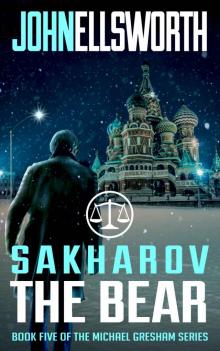 Michael Gresham (Book 5): Sakharov the Bear
Michael Gresham (Book 5): Sakharov the Bear Voices In The Walls: A Psychological Thriller (Michael Gresham Series)
Voices In The Walls: A Psychological Thriller (Michael Gresham Series)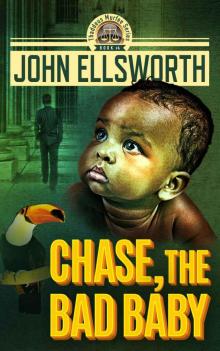 Chase, the Bad Baby: A Legal and Medical Thriller (Thaddeus Murfee Legal Thriller Series Book 4)
Chase, the Bad Baby: A Legal and Medical Thriller (Thaddeus Murfee Legal Thriller Series Book 4)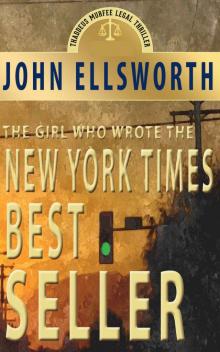 The Girl Who Wrote The New York Times Bestseller: A Novel (Thaddeus Murfee Legal Thrillers Book 8)
The Girl Who Wrote The New York Times Bestseller: A Novel (Thaddeus Murfee Legal Thrillers Book 8) The Defendants: Crime Fiction & Legal Thriller (Thaddeus Murfee Legal Thriller Series Book 1)
The Defendants: Crime Fiction & Legal Thriller (Thaddeus Murfee Legal Thriller Series Book 1) Hellfire (Sisters In Law Book 2)
Hellfire (Sisters In Law Book 2) A Young Lawyer's story
A Young Lawyer's story Annie's Verdict (Michael Gresham Legal Thrillers Book 6)
Annie's Verdict (Michael Gresham Legal Thrillers Book 6) Legal Thriller: Michael Gresham: Secrets Girls Keep: A Courtroom Drama (Michael Gresham Legal Thriller Series Book 2)
Legal Thriller: Michael Gresham: Secrets Girls Keep: A Courtroom Drama (Michael Gresham Legal Thriller Series Book 2) 30 Days of Justis
30 Days of Justis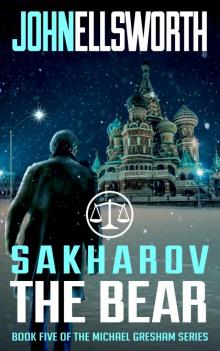 Sakharov the Bear (Michael Gresham Legal Thrillers Book 5)
Sakharov the Bear (Michael Gresham Legal Thrillers Book 5)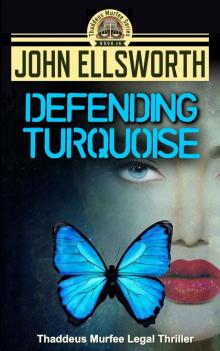 Defending Turquoise (Thaddeus Murfee Legal Thriller Series Book 5)
Defending Turquoise (Thaddeus Murfee Legal Thriller Series Book 5)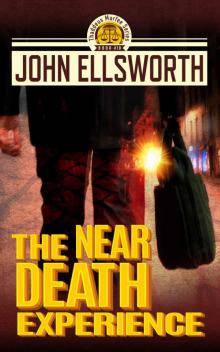 The Near Death Experience (Thaddeus Murfee Legal Thriller Series Book 10)
The Near Death Experience (Thaddeus Murfee Legal Thriller Series Book 10)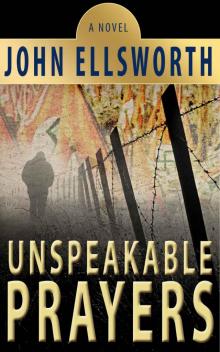 Unspeakable Prayers: WW II to Present Day (Thaddeus Murfee Series of Legal Thrillers)
Unspeakable Prayers: WW II to Present Day (Thaddeus Murfee Series of Legal Thrillers)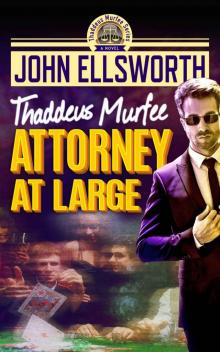 Attorney at Large (Thaddeus Murfee Legal Thriller Series Book 3)
Attorney at Large (Thaddeus Murfee Legal Thriller Series Book 3) The Law Partners (Michael Gresham Legal Thriller Series Book 3)
The Law Partners (Michael Gresham Legal Thriller Series Book 3) Annie's Verdict
Annie's Verdict The Mental Case (Thaddeus Murfee Legal Thriller Series Book 6)
The Mental Case (Thaddeus Murfee Legal Thriller Series Book 6)